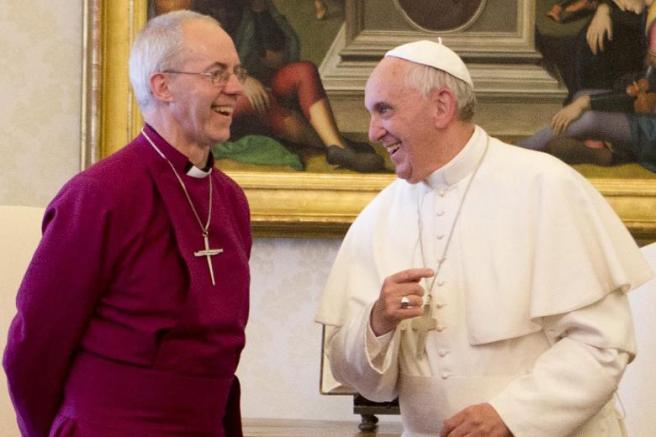
Gay Latinos in Queens celebrate the passage of marriage equality in New York State. (Photo: JoeinQueens/flickr)
President Obama’s endorsement of gay marriage last week has everyone theorizing on whether it will hurt or help his re-election bid. Some argue that this move will cost the president support from Latinos, a rapidly growing population whose votes may decide the race in battleground states.
Bob Quasius, Sr., president of Café Con Leche Republicans, a group that does not take a position on gay marriage, claims the president’s comments will distance him from Latinos, who are now over 16 percent of the U.S. population.
“Sixty percent of Latinos are center-right according to Pew Hispanic,” Quasius said, “and more conservative Latinos, especially evangelical Christians, are strongly opposed to gay marriage. A majority of Latinos voted against gay marriage in California. Among Latinos who support gay marriage, many will view Obama’s recent comments as election time rhetoric,” Quasius said.
But despite a reputation of Latino social conservatism that the GOP likes to tout, in 2008, 67 percent of Hispanics voted for Obama, and Rep. Luis Gutierrez (D-IL) doubts the President’s comments will be a deal breaker.
“Most Latinos favor broader civil rights protections and inclusion in U.S. society and the issue of same-sex marriage is no exception. A majority of Latino voters favor legalizing same-sex marriage, as a recent NCLR study showed,” Rep. Gutierrez said.
Clarissa Martinez, Director of Civic Engagement at NCLR, the country’s largest Latino civil rights advocacy group, believes Mr. Obama’s historic stance will actually increase his appeal among Latinos.
“The President’s endorsement of same-sex marriage is historic and will resonate with the 54 percent of Latinos who support marriage equality (according to a recent report by Social Science Research Solutions, co-released with NCLR),” Martinez emailed. “And while marriage equality has not been a top voting issue or determining factor for Latinos overall, this endorsement may be one factor voters in favor take into account.”
Pedro Julio Serrano, Communications Manager of the National Gay and Lesbian Task Force attributes this to the Latino community’s strong sense of family.
“We know what ‘familia‘ is,” he said, “and when we see same-sex couples in loving and committed relationships, when we see that more that 40 percent are raising children, we want them to have the same rights and protections as the opposite-sex couples have. In any case, if it has an effect, it will be a positive one,” Serrano said.
The stereotype of Latinos as conservatives appears increasingly outdated. Indeed, the president’s marriage equality stance seems to have energized immigration activists, especially young Latino voters who have built an alliance with gay activists on pushing for immigration reform. Juan Rodriguez, who is active in the Florida Immigrant Coalition, told the Associated Press that the gay rights and immigrant rights movements are “very aligned and becoming more so every year.”
Analysts of the Latino vote also say that at the end of the day, the president’s stance on marriage equality will be overshadowed by his reputation on creating jobs and immigration reform.
“Latino voters will be looking for specific plans that address the employment needs of the hardest hit communities, create jobs, and get the economy back on track,” said Martinez, from the NCLR. “Immigration has also risen on the issue priority agenda, particularly fueled by the anti-Latino sentiment with which the immigration debate has been laced, and the impact on the civil rights of the community,” said Martinez.
“For a large segment of the Latino community, immigration issues will probably have a bigger impact on the election than Obama’s support for marriage equality,” said Andrés Duque, a Latino LGBT rights activist and blogger. ”Fairly or unfairly, there is a lot of discontent out there about the Obama administration’s handling of the issue, particularly with the DREAM Act, and what keeps saving him is that the Romney campaign has struggled to frame the issue and aligned himself with some of the most anti-immigrant voices in his party,” Duque added.
So while bread and butter issues might be an opening for the Romney campaign to bait Latino vote, the anti-immigrant rhetoric spewed during the GOP presidential primaries and the presumptive candidate’s own hardline immigration stance might have totally slammed the opening shut.
Rep. Gutierrez stresses the fact that Romney has catered to the “loudest and least tolerant elements of the Republican base,” which he says puts the GOP presidential hopeful and Republicans “out of step with America.”
Originally posted on Feet in 2 Worlds, WNYC It’s A Free Country, and the Huffington Post.



 Lindsay Douglas / Shutterstock.com
Lindsay Douglas / Shutterstock.com
